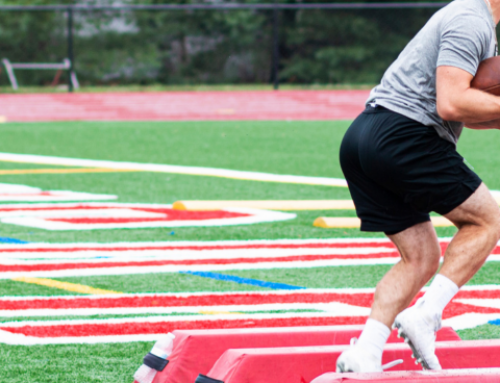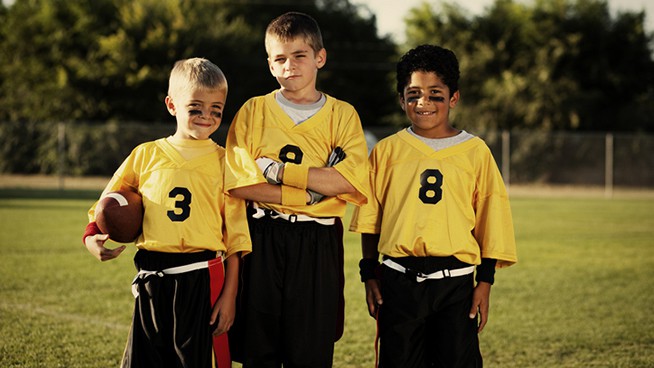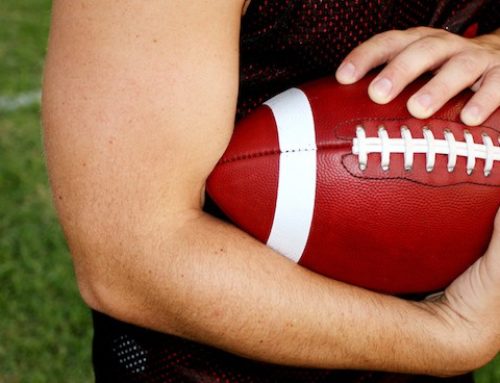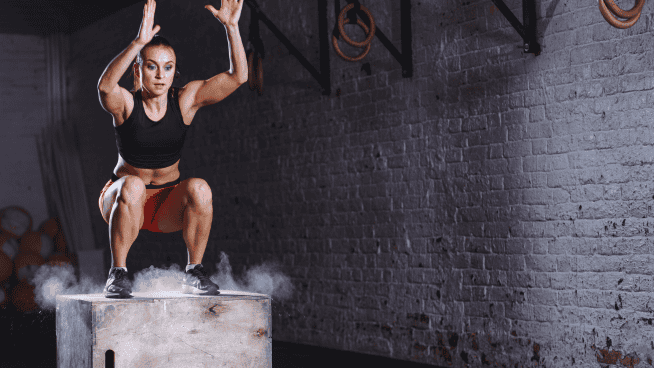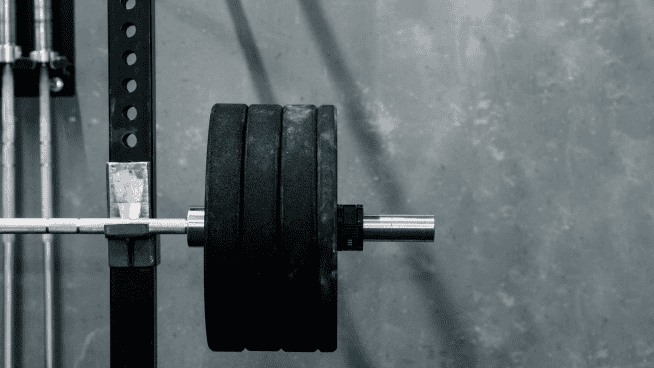Interview with Matt Birk
Baltimore Ravens center Matt Birk should seriously consider buying property in Hawaii. In his 10-year NFL career, the 6’4," 309-pound blocking machine has taken six trips to Honolulu for the Pro Bowl. With such a ridiculous professional resume, it’s hard to believe that sports weren’t always easy for Birk. His path, fueled by hard work, led him from chubby kid to Harvard grad to NFL legend. Below, he talks about his journey and what’s it like approaching the line as one of football’s biggest, baddest guys.
STACK: When did you start playing?
Birk: I was a poor athlete growing up—slow, weak and chubby—but I was lucky to grow up in a neighborhood with lots of kids, so we could just go outside and play ball. I definitely had a love for sports and played a few in high school, but I didn’t play organized football until I transferred to a new high school my sophomore year. I had some buddies there who played, and they talked me into going out. I really liked it, but I didn’t think I had a chance on varsity because our football program was so good. The coach talked me into playing my last two years. I thought that would be the end for me, because, again, I didn’t think I was good enough to go on. Luckily, I ended up playing at Harvard and had a good time.
STACK: To what do you attribute your success?
Birk: Hard work. Football is a great—especially the offensive line—because you’re only as good as how much time and hard work you give. That’s what has allowed me to succeed. I take my off-season training very seriously; I watch what I eat and try to do everything the right way. I consider myself blessed, but I know I’m not the most blessed athletically. I have to work harder than other guys to stay in the league and keep performing at the NFL level.
STACK: Take us through your mental process, beginning with breaking the huddle.
Birk: Once they call the play and we break, I approach the line with a picture in my head of what I expect to see. Once I get up to the line and the offense and defense are both set, I just make the call so everyone is on the same page. Once we start the cadence, I just focus on my job, what step I’m going to take and where on the guy I’m going to put my hand. When the ball’s snapped and I’m engaged with the guy, it’s basically just fighting for my life. I do everything I can to get my guy so the play is a success.
STACK: Was taking a leadership role with the Vikings natural to you?
Birk: It’s kind of natural for a center, because we make the line calls that everyone bases what they do on. It’s important that the center knows the game plan inside and out, because everyone counts on him to make the right call. A leadership quality is built into the position. I always make sure I’m prepared for each game and lead by example.
STACK: If you didn’t play in the NFL player, what would you be doing?
Birk: I had a job lined up on Wall Street working in the financial industry. I was an economics major, so heading to Wall Street was the natural path. Football worked out, and I thank God that it did. I can’t see myself putting on a shirt and tie everyday and doing that. Currently, I own a few businesses, and I try to continue educating myself in the business and learning some lessons. I hope when I’m done playing I can use those lessons.
STACK: When did you realize the importance of training?
Birk: I started lifting weights my freshman year in high school and really got into it. I started reading books about lifting because I wanted to get better as an athlete. I saw myself getting better, which was a thrill for me.
STACK: What was your college recruiting experience like?
Birk: I was recruited by one Big Ten school, and I really wanted to go there. It turned out to be a pretty negative experience though, but that’s how big-time athletics work sometimes. I didn’t enjoy the process, because it was so hard to determine where I stood with a coach or a program. I took visits to Harvard, Yale, West Point and Air Force. I thought going to Harvard was an opportunity I couldn’t pass up; getting that education while continuing to play college football was a no-brainer.
STACK: What has been the most important lesson you’ve learned as an athlete?
Birk: There’s definitely a lot of adversity along the way—personally and as a team. You win games, you lose games, and you have to be mentally tough. That’s important not just for athletics, but also for life. You work as hard as you can and do everything you can, but sometimes things still don’t work out how you wanted them to. That’s life, and you just have to keep going and become more determined. Along the way, your mettle is going to be tested, and you just have to challenge yourself and push yourself from within to become as good as you can. At the beginning of the day, you just have to ask yourself, ‘What can I do to get better today?’ Don’t worry about tomorrow, a year from now or five years from now. Just focus on what you can do today to get better.
STACK: What does it mean to you to be recognized as a Pro Bowler so many times?
Birk: It’s always nice to be recognized, especially by my peers, because I put a lot of effort into what I do. The thing I love about football is that it’s the ultimate team sport, and I’ve been fortunate to play on a lot of good teams. I haven’t won a Super Bowl yet, and that’s the ultimate goal. That’s what drives me.
STACK: Do you have any pre-game rituals?
Birk: I like to go out into the stadium about two hours before kickoff and just lie on the ground and stretch out. It’s my quiet time and helps me get focused on the game. I’m not a big “rah rah” guy. I like to be quiet and get calm heading into a game, because there’s a lot of hoopla and energy surrounding NFL games. I’m at my best when I’m calm and focused on my job. I make sure that I don’t eat a lot before games. That’s one thing I learned early. When I eat a lot, I always end up throwing up. I still get nervous before every game, and that’s what makes it fun and exciting. Every Sunday is a new challenge.
STACK: Tell us about the HIKE Foundation?
Birk: HIKE stands for Hope, Inspiration, Knowledge and Education. I started it in 2002. I’m very fortunate to be where I am in my life, and a lot of people have helped me along the way. I felt like it was time for me to give back and help out some other people. Education has always been important to me, and I started HIKE to help less fortunate kids. The thing I’m most proud of achieving in my life is going to college and getting a degree, so I try to tell emphasize to them that my degree will serve me for a longer time than football will. The ultimate goal is that these kids are successful, and in 20 years from now, turn around and help someone else out to continue the cycle.
STACK: What has been your biggest obstacle?
Birk: On a professional level, I dealt with some injuries a couple years ago that forced me to miss the season. For two years, I kept having surgeries and going through rehab. Mentally, that was tough. We make our living with our bodies; and for a year and a half, my body didn’t feel good. That took a toll on me, and I had to fight through it. I always believed that if I kept working hard and doing what the doctors told me to do, I would get better. And I did.
STACK: What advice can you give younger athletes?
Birk: Make sure you have fun playing your sport. Things won’t always go your way, and that’s OK. Just keep working as hard as you can and have fun. That’s all you can do. Even now, with all the pressures of the NFL, I remind myself that I can only give it as much as I’ve got. And if that’s not good enough, than it’s not. I can only control the level of work I put in, and that’s what I stay focused on. If we don’t win, I still know that I gave it everything I had, and I can live with that.
RECOMMENDED FOR YOU
MOST POPULAR
Interview with Matt Birk
Baltimore Ravens center Matt Birk should seriously consider buying property in Hawaii. In his 10-year NFL career, the 6’4," 309-pound blocking machine has taken six trips to Honolulu for the Pro Bowl. With such a ridiculous professional resume, it’s hard to believe that sports weren’t always easy for Birk. His path, fueled by hard work, led him from chubby kid to Harvard grad to NFL legend. Below, he talks about his journey and what’s it like approaching the line as one of football’s biggest, baddest guys.
STACK: When did you start playing?
Birk: I was a poor athlete growing up—slow, weak and chubby—but I was lucky to grow up in a neighborhood with lots of kids, so we could just go outside and play ball. I definitely had a love for sports and played a few in high school, but I didn’t play organized football until I transferred to a new high school my sophomore year. I had some buddies there who played, and they talked me into going out. I really liked it, but I didn’t think I had a chance on varsity because our football program was so good. The coach talked me into playing my last two years. I thought that would be the end for me, because, again, I didn’t think I was good enough to go on. Luckily, I ended up playing at Harvard and had a good time.
STACK: To what do you attribute your success?
Birk: Hard work. Football is a great—especially the offensive line—because you’re only as good as how much time and hard work you give. That’s what has allowed me to succeed. I take my off-season training very seriously; I watch what I eat and try to do everything the right way. I consider myself blessed, but I know I’m not the most blessed athletically. I have to work harder than other guys to stay in the league and keep performing at the NFL level.
STACK: Take us through your mental process, beginning with breaking the huddle.
Birk: Once they call the play and we break, I approach the line with a picture in my head of what I expect to see. Once I get up to the line and the offense and defense are both set, I just make the call so everyone is on the same page. Once we start the cadence, I just focus on my job, what step I’m going to take and where on the guy I’m going to put my hand. When the ball’s snapped and I’m engaged with the guy, it’s basically just fighting for my life. I do everything I can to get my guy so the play is a success.
STACK: Was taking a leadership role with the Vikings natural to you?
Birk: It’s kind of natural for a center, because we make the line calls that everyone bases what they do on. It’s important that the center knows the game plan inside and out, because everyone counts on him to make the right call. A leadership quality is built into the position. I always make sure I’m prepared for each game and lead by example.
STACK: If you didn’t play in the NFL player, what would you be doing?
Birk: I had a job lined up on Wall Street working in the financial industry. I was an economics major, so heading to Wall Street was the natural path. Football worked out, and I thank God that it did. I can’t see myself putting on a shirt and tie everyday and doing that. Currently, I own a few businesses, and I try to continue educating myself in the business and learning some lessons. I hope when I’m done playing I can use those lessons.
STACK: When did you realize the importance of training?
Birk: I started lifting weights my freshman year in high school and really got into it. I started reading books about lifting because I wanted to get better as an athlete. I saw myself getting better, which was a thrill for me.
STACK: What was your college recruiting experience like?
Birk: I was recruited by one Big Ten school, and I really wanted to go there. It turned out to be a pretty negative experience though, but that’s how big-time athletics work sometimes. I didn’t enjoy the process, because it was so hard to determine where I stood with a coach or a program. I took visits to Harvard, Yale, West Point and Air Force. I thought going to Harvard was an opportunity I couldn’t pass up; getting that education while continuing to play college football was a no-brainer.
STACK: What has been the most important lesson you’ve learned as an athlete?
Birk: There’s definitely a lot of adversity along the way—personally and as a team. You win games, you lose games, and you have to be mentally tough. That’s important not just for athletics, but also for life. You work as hard as you can and do everything you can, but sometimes things still don’t work out how you wanted them to. That’s life, and you just have to keep going and become more determined. Along the way, your mettle is going to be tested, and you just have to challenge yourself and push yourself from within to become as good as you can. At the beginning of the day, you just have to ask yourself, ‘What can I do to get better today?’ Don’t worry about tomorrow, a year from now or five years from now. Just focus on what you can do today to get better.
STACK: What does it mean to you to be recognized as a Pro Bowler so many times?
Birk: It’s always nice to be recognized, especially by my peers, because I put a lot of effort into what I do. The thing I love about football is that it’s the ultimate team sport, and I’ve been fortunate to play on a lot of good teams. I haven’t won a Super Bowl yet, and that’s the ultimate goal. That’s what drives me.
STACK: Do you have any pre-game rituals?
Birk: I like to go out into the stadium about two hours before kickoff and just lie on the ground and stretch out. It’s my quiet time and helps me get focused on the game. I’m not a big “rah rah” guy. I like to be quiet and get calm heading into a game, because there’s a lot of hoopla and energy surrounding NFL games. I’m at my best when I’m calm and focused on my job. I make sure that I don’t eat a lot before games. That’s one thing I learned early. When I eat a lot, I always end up throwing up. I still get nervous before every game, and that’s what makes it fun and exciting. Every Sunday is a new challenge.
STACK: Tell us about the HIKE Foundation?
Birk: HIKE stands for Hope, Inspiration, Knowledge and Education. I started it in 2002. I’m very fortunate to be where I am in my life, and a lot of people have helped me along the way. I felt like it was time for me to give back and help out some other people. Education has always been important to me, and I started HIKE to help less fortunate kids. The thing I’m most proud of achieving in my life is going to college and getting a degree, so I try to tell emphasize to them that my degree will serve me for a longer time than football will. The ultimate goal is that these kids are successful, and in 20 years from now, turn around and help someone else out to continue the cycle.
STACK: What has been your biggest obstacle?
Birk: On a professional level, I dealt with some injuries a couple years ago that forced me to miss the season. For two years, I kept having surgeries and going through rehab. Mentally, that was tough. We make our living with our bodies; and for a year and a half, my body didn’t feel good. That took a toll on me, and I had to fight through it. I always believed that if I kept working hard and doing what the doctors told me to do, I would get better. And I did.
STACK: What advice can you give younger athletes?
Birk: Make sure you have fun playing your sport. Things won’t always go your way, and that’s OK. Just keep working as hard as you can and have fun. That’s all you can do. Even now, with all the pressures of the NFL, I remind myself that I can only give it as much as I’ve got. And if that’s not good enough, than it’s not. I can only control the level of work I put in, and that’s what I stay focused on. If we don’t win, I still know that I gave it everything I had, and I can live with that.

